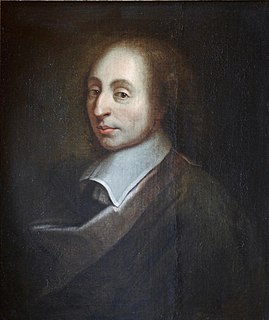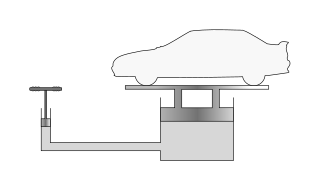 W
WBlaise Pascal was a French mathematician, physicist, inventor, philosopher, writer and Catholic theologian.
 W
WThe pascal is the SI derived unit of pressure used to quantify internal pressure, stress, Young's modulus and ultimate tensile strength. The unit, named after Blaise Pascal, is defined as one newton per square metre and is equivalent to 10 barye (Ba) in the CGS system. The unit of measurement called standard atmosphere (atm) is defined as 101325 Pa.
 W
WJacqueline Pascal, sister of Blaise Pascal, was born at Clermont-Ferrand, Auvergne, France.
 W
WPascal's calculator is a mechanical calculator invented by Blaise Pascal in the mid 17th century. Pascal was led to develop a calculator by the laborious arithmetical calculations required by his father's work as the supervisor of taxes in Rouen. He designed the machine to add and subtract two numbers directly and to perform multiplication and division through repeated addition or subtraction.
 W
WPascal's law is a principle in fluid mechanics given by Blaise Pascal that states that a pressure change at any point in a confined incompressible fluid is transmitted throughout the fluid such that the same change occurs everywhere. The law was established by French mathematician Blaise Pascal in 1653 and published in 1663.
 W
WIn mathematics, Pascal's pyramid is a three-dimensional arrangement of the trinomial numbers, which are the coefficients of the trinomial expansion and the trinomial distribution. Pascal's Pyramid is the three-dimensional analog of the two-dimensional Pascal's triangle, which contains the binomial numbers and relates to the binomial expansion and the binomial distribution. The binomial and trinomial numbers, coefficients, expansions, and distributions are subsets of the multinomial constructs with the same names.
 W
WIn projective geometry, Pascal's theorem states that if six arbitrary points are chosen on a conic and joined by line segments in any order to form a hexagon, then the three pairs of opposite sides of the hexagon meet at three points which lie on a straight line, called the Pascal line of the hexagon. It is named after Blaise Pascal.
 W
WPascal's wager is an argument in philosophy presented by the seventeenth-century French philosopher, theologian, mathematician and physicist, Blaise Pascal (1623–1662). It posits that humans bet with their lives that God either exists or does not.
 W
WMarguerite Périer was a French nun and follower of Jansenism. She was the niece of Blaise Pascal, and wrote a biography of her uncle that has been preserved.